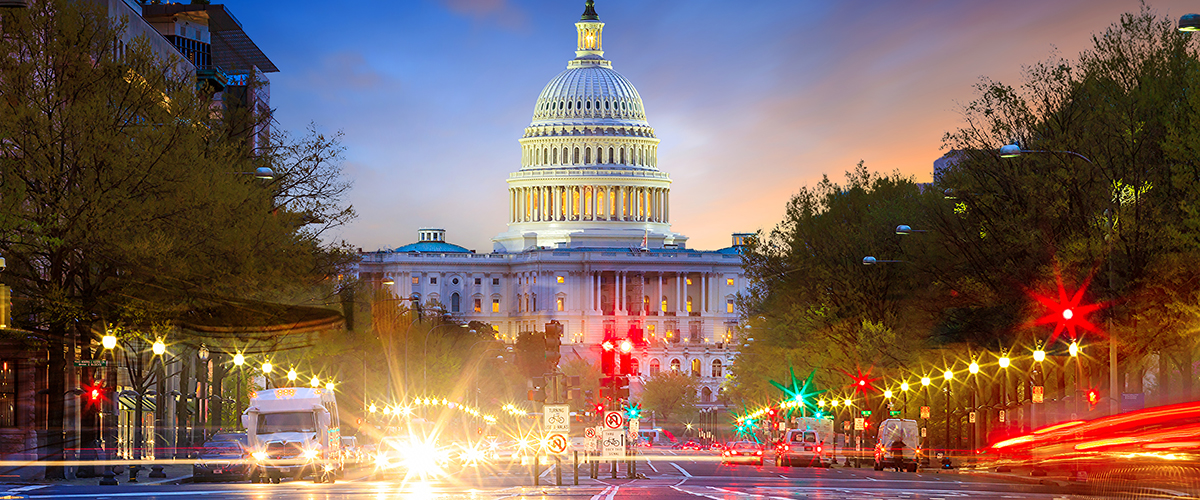Under the proposed legislation, states would be free to legalize marijuana if they chose, without fear of interference from the federal government.
A new landmark bipartisan bill introduced on Thursday would allow states to legalize marijuana without federal interference. The Ending Federal Marijuana Prohibition Act of 2019, filed by Reps. Don Young (R-AK) and Tulsi Gabbard (D-HI), removes marijuana from the federal controlled substances list so that states could regulate marijuana as they choose.
Since 1970, marijuana has been classified as a Schedule I substance under the Controlled Substances Act. The Drug Enforcement Administration (DEA) considers Schedule I substances to have “no currently accepted medical use and a high potential for abuse.” A Schedule I classification also means that marijuana is illegal under federal law even in states that legalize it.
The Ending Federal Marijuana Prohibition Act of 2019 would remove marijuana altogether from the Controlled Substances Act, eliminating the potential of the federal government cracking down on states that have legalized medical or recreational marijuana.
Both Young and Gabbard spoke outside the Capitol on Thursday to introduce the bill.
“Our archaic marijuana policies – based on stigma and outdated myths – have been used to wage a failed War on Drugs. Families have been torn apart, communities left fractured, and over-criminalization and mass incarceration have become the norm,” Gabbard said.
“In 2017 alone, our country arrested 600,000 people just for possession of marijuana. Our bipartisan legislation takes a step toward ending the failed war on drugs, ending the federal prohibition on marijuana, and ensuring that our policies are guided by facts,” she added.
# of people arrested for marijuana law violation in 2017: 659,700
# of those charged with marijuana law violations arrested for possession only: 599,282 (90.8 percent)
I intro’d bipartisan bill today to END THE FEDERAL MARIJUANA PROHIBITION. Congress must act now #EndTheDrugWar pic.twitter.com/vbMV01nSRv
— Tulsi Gabbard (@TulsiGabbard) March 7, 2019
Removing marijuana from the controlled substance list would also allow banks to provide financial services to the cannabis industry. With how marijuana is classified now, many banks refuse to provide accounts or loans to cannabis businesses because it makes them susceptible to money laundering laws.
“As businessmen, the biggest challenge they have is not being able to bank,” said Young in a statement. “This bill takes care of it.”
Young, who is the longest-serving Republican in House history, added that the Ending Federal Marijuana Prohibition Act of 2019 is “the only bipartisan piece of legislation that would allow states to make independent choices about their marijuana programs.”
NORML Executive Director Erik Altieri joined the two lawmakers outside the Capitol as they spoke on the new legislation.
“The Ending Federal Prohibition Act is about acknowledging political, scientific, and economic reality. Marijuana legalization is here to stay and it is time that federal policy reflect that,” Altieri said. “This legislation is effective in its simplicity, it will deschedule marijuana from the Controlled Substances Act and end federal prohibition once and for all, full stop.”
The Ending Federal Marijuana Prohibition Act mirrors part of the Marijuana Justice Act, introduced by Sen. Cory Booker (D-NJ) last month. Booker’s bill, however, also utilizes federal funds to incentivize states to legalize marijuana.
Marijuana Data Collection Act of 2019
Also on Thursday, Young and Gabbard reintroduced the Marijuana Data Collection Act of 2019, which would study the effects of state legalized medical and recreational marijuana programs. Specifically, it would call for researching how legal marijuana has influenced state revenues, public health, criminal justice, employment, and substance abuse and opioids.
“This bill will allow us the opportunity to make sure we are governed by the truth and facts and not misinformation and lies,” Gabbard said.
Gabbard, who announced her candidacy for the 2020 presidential election, is one of several women in politics helping drive the effort to reform marijuana policies.
More on Marijuana Legalization
The number of Americans who support marijuana legalization has reached record highs, particularly among Democratic voters. Currently 10 states and Washington, D.C. have made marijuana legal for recreational purposes.
Visit our news page to read more about the latest developments in the cannabis industry.






